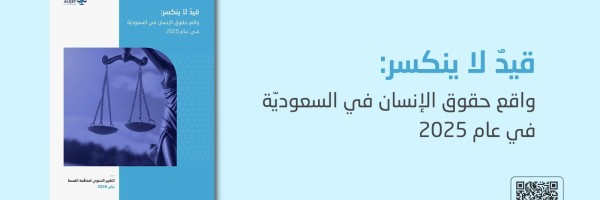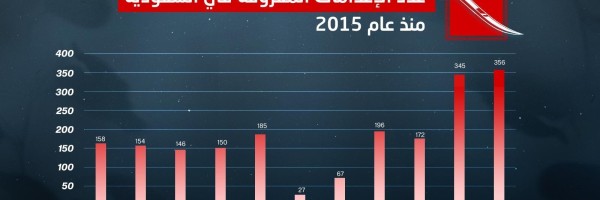The practice of enforced disappearance is systematic and widespread in Saudi Arabia. It is used by the authorities to silence activists, journalists or anyone critical of the authorities. It is also part of a larger pattern of arbitrary arrests that are followed by shorter or longer periods of enforced disappearance before victims reappear to face trial. This means that most people who get arrested in Saudi Arabia endure periods of enforced disappearance. Exactly how long this situation lasts depends on whether or not the family and relatives enquire about the victim and demand to know their fate, and also how well known the victim’s name is in the media or among NGOs and UN bodies. Detainees tend to remain disappeared for longer if no one asks about them.
Sometimes enforced disappearances have continued for a very long time, raising concerns for the safety and fate of the victims. Examples include journalist Marwan al-Muraisy, who was arrested by security forces in June 2018 and was only able to contact his family for the first time in May 2019, after almost a year of enforced disappearance.
Humanitarian worker Abdulrahman al-Sadhan was arrested in March 2018 by secret police from his workplace at the headquarters of the Saudi Red Crescent in Riyadh. Following 23 months of enforced disappearance and no news about his fate, on 12 February 2020 he was for the first time allowed to make a phone-call to his family. During the call, al-Sadhan mentioned being held at al-Ha’ir Prison, information the Saudi authorities have failed to confirm to this date. Since then, he has been denied any further contact with his family.
Similarly, journalist Turki al-Jasser, was arrested on 15 March 2018, following a raid on his home. Since then al-Jasser completely disappeared. He was not allowed visits or phone calls, and the Saudi authorities refused to answer any inquiries about him. Finally in February 2020, in response to a submission from the Special Procedures of the UN Human Rights Council, the Saudi authorities stated that he is being held in al-Ha’ir prison. At the same time, he was for the first time allowed to make a phone-call to his family, in which he informed them of his location, however since then he has been denied any further contact.
In a recurring pattern, a large number of other prisoners of conscience have also been denied any contact with their families for several months now. This includes women’s rights activist Loujain al-Hathloul, religious reformer Salman al-Odah, and others, raising serious concerns over their fate and wellbeing.
Such cases are considered enforced disappearances under international law, which occur when "persons are arrested, detained or abducted against their will or otherwise deprived of their liberty by officials of different branches or levels of Government, or by organized groups or private individuals acting on behalf of, or with the support, direct or indirect, consent or acquiescence of the Government, followed by a refusal to disclose the fate or whereabouts of the persons concerned or a refusal to acknowledge the deprivation of their liberty".
ALQST calls on the Saudi authorities to put an end to the practice of enforced disappearance, and immediately reveal the fate of those forcibly disappeared. Furthemore, the Saudi authorities must ratify the UN Convention on the Protection of all Persons from Enforced Disappearance.




